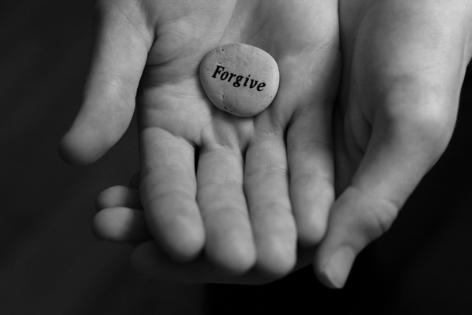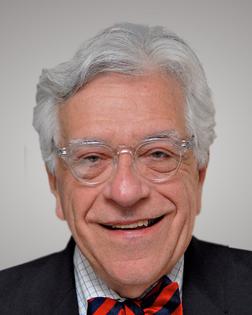The God Squad: If Hitler was crossing the street
Q: Dear Rabbi Gellman, you asked if we must unconditionally forgive. I used to go to a priest for spiritual counseling, Monsignor James Cooney. One day, a co-worker said she could never be a Christian because she would have to love and forgive everyone, including people who hurt her. I didn't know how to answer her and spoke to Msgr. Cooney about it. He said this is a common misconception. He told me Jesus never said you have to like everyone. There were plenty of people he didn't like. But you do have to care about them. He told me forgiveness means letting go of the anger and bitterness. He gave me the following example. Someone who hurt you badly is crossing the street and is hit by a car. You have a choice. You can stand there and say "Good for you! You got what you deserve!" Or you can call for help. Calling for help does not mean you will now let that person be part of your life. I can give you a real-life example. I teach children with special needs at my church. One day, a third grade girl with autism came to church class and said there was a boy in her class that bothered her. He called her names, poked her, followed her around at recess, etc. She did her best to avoid him because she didn't like him. That day he fell at recess and was bleeding. She said she went inside and got the school nurse to help him. We talked about this. She didn't like him and had no desire to ever be his friend, but she got help when he needed it instead of letting him bleed. This is the forgiveness Msgr. Cooney described. And this is the forgiveness I teach my students. – (From L)
A: Thank you, dear L, for your compassionate response to this ethical dilemma of unconditional forgiveness. Let us not diminish Jesus’ moral challenge to love our enemies. In Luke 6: 27-28 Jesus said, “Father, forgive them, for they know not what they do, but to you who are listening I say: Love your enemies, do good to those who hate you, bless those who curse you, pray for those who mistreat you.”
This is a clear and categorical command to love one’s enemies. It is hard to understand how one can love one’s enemies but also dislike them. If Hitler was crossing the street and got hit by a bus, I would not call an ambulance. However, Jesus, I think, is calling upon people as a condition of following him to completely transform the natural way we react to sin.
Most readers have interpreted the meaning behind this counterintuitive commandment as a desire to avoid hatred which is corrosive to our souls. Perhaps but I think the deeper reason is that we cannot ask God to forgive us unless and until we forgive them. In Luke 6:37 we read, "Do not judge, and you will not be judged. Do not condemn, and you will not be condemned. Forgive, and you will be forgiven." And again, in Matthew 6:12 in the Lord’s Prayer, "Forgive us our debts, as we also have forgiven our debtors."
And yet again in Matthew 6:14-15,: "If you forgive others their trespasses, your heavenly Father will also forgive you. But if you do not forgive others their trespasses, neither will your Father forgive your trespasses."
In my tradition on Yom Kippur, the holy day of repentance, we Jews ask God to forgive us and we preface our prayers with the cry, “We have no (good) deeds!” (Heb: ki ain banu ma’asim). The point is that we have no right to withhold from others what we want God to bestow upon us. We must be willing to forgive as a precondition for God’s forgiveness.
This command to forgive is apart from the question of forgiving an unrepentant sinner. There is no doubt that we must accept the sincere repentance of a sinner. In Luke 17:3-4 we read words that could have been written by a rabbi, "If your brother sins against you, rebuke him; and if he repents, forgive him. Even if they sin against you seven times in a day and seven times come back to you saying, 'I repent,' you must forgive them."
However, this command does not seem to include the non-repentant sinner which remains a deep and vexing command.
One way, perhaps, of finding our way out of this problem is to consider that the sinner acted out of ignorance. They simply did not understand the good and so they acted sinfully. The proof for this comes from what I consider to be among the most powerful words in the Christian Testament, "Father, forgive them, for they do not know what they are doing." (Luke 23:34)
(Send ALL QUESTIONS AND COMMENTS to The God Squad via email at godsquadquestion@aol.com. Rabbi Gellman is the author of several books, including “Religion for Dummies,” co-written with Fr. Tom Hartman. Also, the new God Squad podcast is now available.)
©2025 The God Squad. Distributed by Tribune Content Agency, LLC.
(c) 2025 THE GOD SQUAD DISTRIBUTED BY TRIBUNE MEDIA SERVICES, INC.












Comments